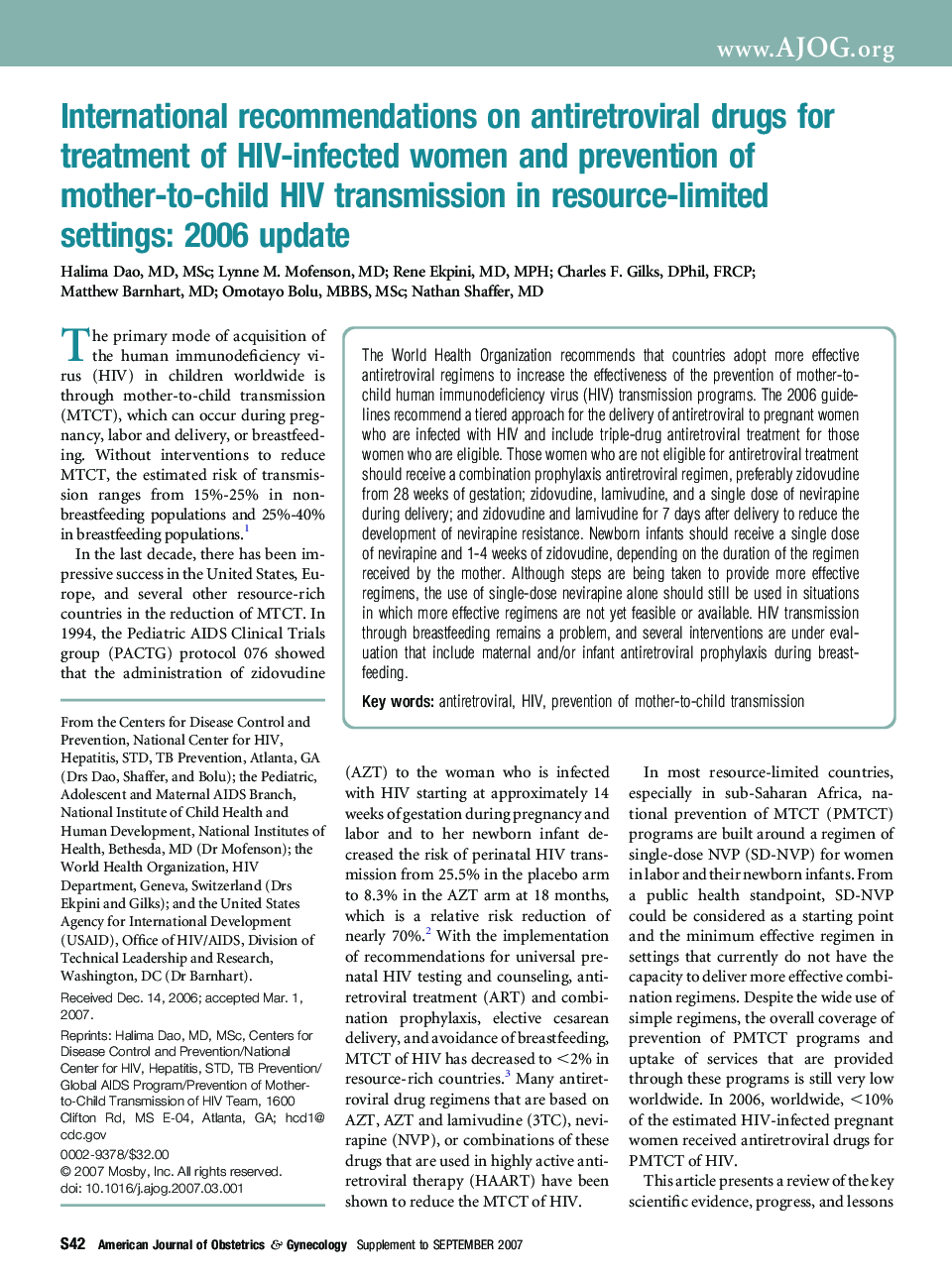| Article ID | Journal | Published Year | Pages | File Type |
|---|---|---|---|---|
| 3439053 | American Journal of Obstetrics and Gynecology | 2007 | 14 Pages |
The World Health Organization recommends that countries adopt more effective antiretroviral regimens to increase the effectiveness of the prevention of mother-to-child human immunodeficiency virus (HIV) transmission programs. The 2006 guidelines recommend a tiered approach for the delivery of antiretroviral to pregnant women who are infected with HIV and include triple-drug antiretroviral treatment for those women who are eligible. Those women who are not eligible for antiretroviral treatment should receive a combination prophylaxis antiretroviral regimen, preferably zidovudine from 28 weeks of gestation; zidovudine, lamivudine, and a single dose of nevirapine during delivery; and zidovudine and lamivudine for 7 days after delivery to reduce the development of nevirapine resistance. Newborn infants should receive a single dose of nevirapine and 1-4 weeks of zidovudine, depending on the duration of the regimen received by the mother. Although steps are being taken to provide more effective regimens, the use of single-dose nevirapine alone should still be used in situations in which more effective regimens are not yet feasible or available. HIV transmission through breastfeeding remains a problem, and several interventions are under evaluation that include maternal and/or infant antiretroviral prophylaxis during breastfeeding.
